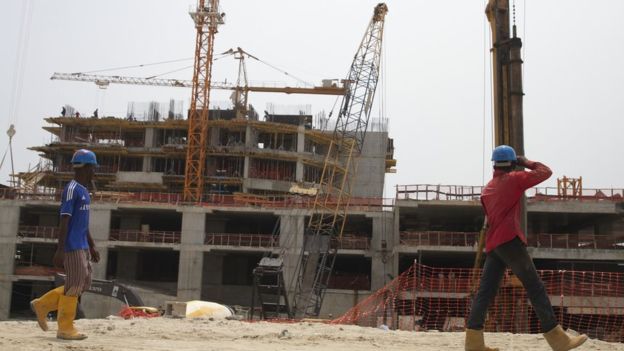Nigerians living in the Federal Capital Territory (FCT) Abuja, Lagos and Ogun states applauded president Muhammadu Buhari when he unveiled his plan to partially relax the five weeks lockdown order that kept many at home and brought the economy to a zero level.

Although the stay-at-home directive was introduced as one of the measures deployed by the federal government to stop the deadly coronavirus from spreading, it came to many as bizarre.
For a section of the affected group, it was time to unite with family and friends, while others leveraged on the free time provided to ponder on the virus and strategise on how to carry on with life under a post COVID-19 era.
It is needless to highlight the experiences of many Nigerians during this period. However, it is noteworthy to state that the stay-at-home order was becoming unbearable and people were really urging for freedom to go out.
Finally, it was Monday, May 4, 2020, the first day that everyone is expected to be allowed to move around freely without any form of harassment after the presidential announcement to lift what many described as agony on their overall existence.
Though activities are still highly regulated as people are only permitted to move between 6:00 am and return back to their homes latest 8:00 pm, many received the ease as a lifeline sufficient enough to allow them reorganise their businesses and other aspects of life.
With these in mind, many people came out with plenty of expectations, running from pillar to post in an effort to figure out how to start life afresh after the COVID-19 brouhaha.
Sadly, however, a lot of things have changed. It is even worse for players in the building industry who are protesting against the sudden hike in the cost of stone dust, one of the major materials used for block production.
The initial market price for stone dust was valued between N2,400 and N2,600 per tonne before the lockdown took effect.
But, as of Monday, the price of the same dust jumped to N3,500 per tonne.
This development raised an alarm among those who are into block business as they expressed fear that the pathetic development would influence the actual market price of the final product.
Before now, one block was sold within the range of N150 to N180 depending on the location. The questions many are now asking is how much will the same product be given out in the face of the new increment?
“I don’t know what to do right now,” Yusuf Osawe, a block industry owner at Kugbo in Abuja hinted during a visit to his site.
According to him, the recent development calls for rapid market review if business must continue. He decried that he could no longer carry on with his business unless something urgent was done to cushion the new market lapses.
“I have done all my calculations including the money that I will pay my workers. The truth is that the profit has gone back to the cost of buying materials,” he disclosed.
Similarly, another industry ally, Anthony Chukwuemeka, expressed shock at the sudden news. According to him, the upheaval has created pandemonium in the market with many people not so sure of their next steps.
“This kind thing tire me oo,” he said in his local lingual (Pigin English) to describe the peculiar situation.
Anthony narrated how the lockdown affected the production of stone dust across many quarries operating within the federal capital territory which led to what looks like an artificial market scarcity of the product as well as the price hike.
Stone dust is just one of the many materials required for the production of block. Cement, water, petrol, diesel, as well as manpower are all part of the resources required to successfully operate any block industry.
We may not count the economic impact of other materials in this write-up, that is a topic for another day.
Truth-be-told, this is one out of many cases. Although the stay at home directive was conceived out of good will to combat the sinister monster revenging our freedom and happiness, however, the reverse is now the case as the economy takes a nosedive.
It is a good thing that the lockdown order has partially been lifted and normalcy is gradually resuming again. However, it is pivotal to submit that while the government may be winning the war against the virus through the stay-at-home directive, an unconscious and hidden economic crack that is worse than the virus is also being created.
This is the real monster that the government must now focus on and deal with to ensure balance in the fight against COVID-19 and economic stability.
By Etta Michael Bisong, Abuja
